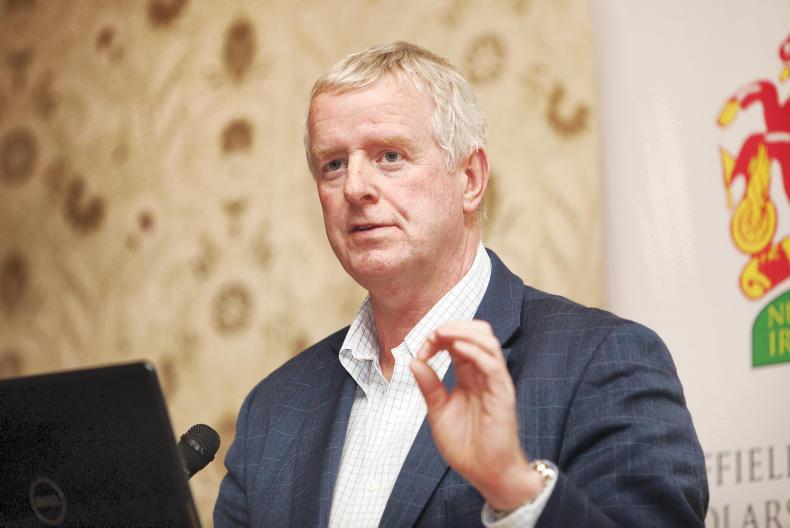Wednesday 29 March 2017 is Brexit day. The UK prime minister, Theresa May, has written to EU council president Donald Tusk, signalling the intention of the UK to leave the EU.
Mrs May has triggered Article 50. She will inform her parliament later on Wednesday.
But what are the steps that will take place over the next two years?
1. Breaking the news
On Wednesday 29 March at 12.30pm, the British ambassador to EU, Sir Tim Barrow, delivers the Article 50 letter from Mrs May to Donald Tusk, informing him that the UK wishes to leave the EU under the provisions of Article 50 of the Lisbon Treaty.
2. The EU starts to plan
On 29 April, president Tusk will convene a meeting of the EU 27 leaders (all EU countries except the UK) to give mandate to EU Commission to negotiate with the UK. Michel Barnier will lead the EU Commission’s negotiating team.
3. The French connection
On 7 May the second round of French presidential elections take place. The outcome of this election will have major consequences on the outcome of the Brexit negotiations. Should the far-right candidate Marine Le Pen win, she has promised to look to remove France from the EU. Her stance around the Brexit talks could prove to be decisive either way.
4. Another May day
In May, the EU Commission is expected to publish its negotiating position. Only after this can the preliminary negotiations between the EU and the UK take place.
5. We look to Germany
Elections in Germany take place on 24 September. While incumbent German chancellor Angela Merkel is expected to retain power even if she loses out, the next obvious candidate is Martin Schulz of the SPD party. Either way, Germany is unlikely to differ from its Brexit position. After the federal elections in Germany, the real Brexit talks will start.
6. Early targets
The target for conclusion of negotiations is October 2018. Talks need to be completed by this stage to enable the EU council, EU parliament and UK parliament approve the deal the sides have struck. This is thought to be an optimistic timetable as new trade deals have, until now, taken several years to negotiate.
7. No going back
By March 2019, negotiations are scheduled to have finished and the UK will leave the EU. We will wait and see.
Read more
Full coverage: Brexit
Wednesday 29 March 2017 is Brexit day. The UK prime minister, Theresa May, has written to EU council president Donald Tusk, signalling the intention of the UK to leave the EU.
Mrs May has triggered Article 50. She will inform her parliament later on Wednesday.
But what are the steps that will take place over the next two years?
1. Breaking the news
On Wednesday 29 March at 12.30pm, the British ambassador to EU, Sir Tim Barrow, delivers the Article 50 letter from Mrs May to Donald Tusk, informing him that the UK wishes to leave the EU under the provisions of Article 50 of the Lisbon Treaty.
2. The EU starts to plan
On 29 April, president Tusk will convene a meeting of the EU 27 leaders (all EU countries except the UK) to give mandate to EU Commission to negotiate with the UK. Michel Barnier will lead the EU Commission’s negotiating team.
3. The French connection
On 7 May the second round of French presidential elections take place. The outcome of this election will have major consequences on the outcome of the Brexit negotiations. Should the far-right candidate Marine Le Pen win, she has promised to look to remove France from the EU. Her stance around the Brexit talks could prove to be decisive either way.
4. Another May day
In May, the EU Commission is expected to publish its negotiating position. Only after this can the preliminary negotiations between the EU and the UK take place.
5. We look to Germany
Elections in Germany take place on 24 September. While incumbent German chancellor Angela Merkel is expected to retain power even if she loses out, the next obvious candidate is Martin Schulz of the SPD party. Either way, Germany is unlikely to differ from its Brexit position. After the federal elections in Germany, the real Brexit talks will start.
6. Early targets
The target for conclusion of negotiations is October 2018. Talks need to be completed by this stage to enable the EU council, EU parliament and UK parliament approve the deal the sides have struck. This is thought to be an optimistic timetable as new trade deals have, until now, taken several years to negotiate.
7. No going back
By March 2019, negotiations are scheduled to have finished and the UK will leave the EU. We will wait and see.
Read more
Full coverage: Brexit








SHARING OPTIONS